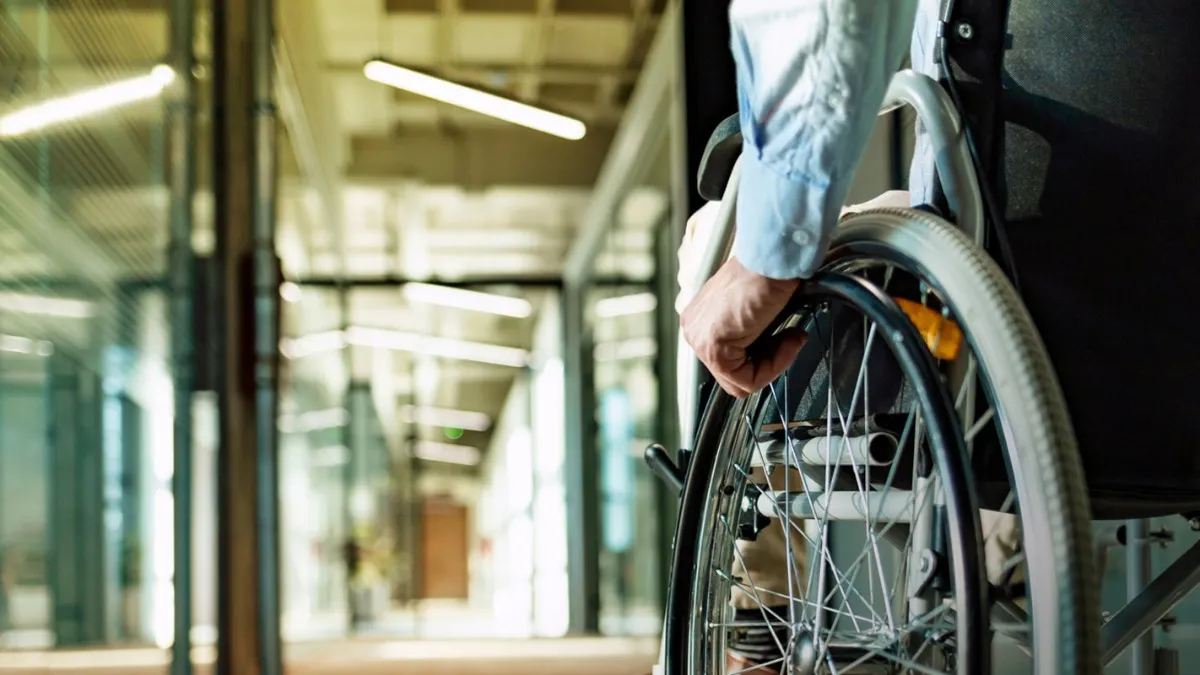By Venessa Lee for The Straits Times
Copyright tnp

In secondary school, Ms Sara Cher was far from a shrinking violet. She asked questions in class and was an active member of the drama club, her co-curricular activity.
When she started experiencing social anxiety and panic attacks in Secondary 3 – sometimes slipping out of lessons to hole up in the school toilets for more than an hour – people around her thought she was “faking it”, recalls Ms Cher.
She is now a 23-year-old undergraduate in early childhood education at the Singapore University of Social Sciences.
Feeling that she was “on the outside of a lot of conversations” and lacking a sense of belonging in school, she had physical symptoms such as tightness in her chest and a sensation of not being able to breathe.
She says: “There would be a sudden feeling of claustrophobia. I felt like people were staring at me.”
Ms Cher channelled her teen experiences as she prepared for her professional acting debut in a play about how the teenage brain works, titled Brainstorm.
The production in October is by Gateway Arts, a theatre company for young people. It tackles issues such as teens’ relationships with their parents and peers, gaming, aspirations, academic pressure, fear of rejection and anxiety about socialisation.
Her fellow cast member Matthias Teh, 26, has also experienced social anxiety, particularly in his late teens and early 20s. He sometimes endured moments of feeling lost, awkward or depressed as he was finding his footing in the theatre industry and going through national service.
Mr Teh, a freelance performer, theatre educator and bartender, says: “A lot of my personal experiences became that bridge between me and my teen character. Theatre-making has been a good opportunity to take negative experiences and alchemise them into something beautiful and, hopefully, helpful in the world.”
Why parenting matters
A recently published study found that girls go through a sharp spike in social anxiety – the intense fear of being judged negatively in social situations – between the ages of 8½ and 13.
By 13, their social anxiety levels are significantly higher than boys’, according to a study led by Nanyang Technological University professor of psychology Setoh Peipei.
Left unchecked, social anxiety can have long-term implications for mental well-being, interpersonal relationships and academic or work performance later in life, said Prof Setoh. The study was published online on Aug 30 in the journal Research On Child And Adolescent Psychopathology.
In September 2024, the first nationwide survey on youth mental health by the Institute of Mental Health found that a significant proportion of youth in Singapore had experienced severe or very severe symptoms of depression, anxiety or stress.
Nearly a third of young people aged 15 to 35 reported symptoms that included feeling empty, tense or upset most of the time, according to the National Youth Mental Health Study.
While adolescent girls may be more aware and expressive of their emotions and fears, compared with boys their age, social anxiety may present in male teens as behavioural issues.
Teenage boys may “externalise” their fears of being judged by making fun of others or “playing the clown”, says psychotherapist Evonne Lek from Reconnect Psychology & Family Therapy.
It can be challenging for parents to detect that their teen is experiencing social anxiety, especially when there is an over-emphasis on academic performance, counsellors and therapists say.
Nevertheless, parents play a crucial role in helping their adolescents to overcome it.
Mr Chris Tan, counsellor and therapist at Stress.SG, which specialises in services addressing anxiety, depression and stress, urges parents to maintain a positive relationship with their child.
He says: “Anxiety and depression can be significantly mitigated through optimal parenting.”
He urges parents not to impart the idea that academic success alone guarantees success in life. Instead, he advises parents to help their child develop skills such as building healthy relationships, working effectively with different kinds of people and presenting ideas clearly, which all play a role in satisfaction and well-being.
Sewing and breathing
Calming techniques helped Mr Teh and Ms Cher cope with social anxiety in their younger days.
To prevent himself from spiralling into negativity, Mr Teh used techniques like box breathing, which involves taking slow, deep breaths.
He practised the 5-4-3-2-1 grounding method, where stress and anxiety are managed by bringing one’s attention back to the present. It is done by thinking of five things you can see, four things you can feel, three things you can hear, two things you can smell and one thing you can taste.
He also consulted a psychiatrist and a psychologist, and took medication for anxiety when he was 18.
Keeping one’s hands occupied can be a way to ground oneself in the present moment, providing ballast against racing negative thoughts.
As for Ms Cher, crochet and cross-stitch help. “I have a tendency to catastrophise, especially when doing something new. Thinking ‘this colour goes here now’ occupies enough of my mind that anxious thoughts fade to the back.” She added that the panic attacks subsided by the time she was 16.
She says her parents were a great source of support. “I thought, what if I had made everything up for attention, like other people said? I felt crazy. But my parents said no. They knew me and that I wasn’t making it up. It felt good to have them on my side.”
It may not be academic stress
Parents can sometimes mistakenly attribute their teen’s signs of stress to academic pressure.
Mrs Tan, who declines to use her real name, noticed in 2024 that her 18-year-old daughter looked stressed and unhappy.
The IT professional in her 40s says: “I thought it was her school work. I could see that she studied very hard, but she was not getting the results she wanted. I kept attributing it to the stress of her studies.”
Eventually, her daughter revealed that a close friend had spoken of her negatively behind her back.
Several sessions with a therapist in 2025 helped her daughter overcome her stress and anxiety.
Mrs Tan says: “She told me she wanted to see a doctor. I had been telling her to snap out of it, and distance herself from bad friendships, but it didn’t work. We need to be sensitive and careful when talking with our own children, and not dismiss their concerns or rants as being rebellious or defiant.
“I am fortunate because she’s willing to talk. Certain things are best left to professionals, which helped her when we couldn’t, despite both of us reading about anxiety on the internet. She seems more confident now.”
Trusted adults can help
Trusted adults like a therapist, a psychiatrist and a school counsellor have helped 14-year-old Bella (not her real name) make some progress in addressing her social anxiety.
In 2024, she was sidelined at school from her group of friends, who left her behind in the canteen when they returned to class after recess. She later found out that some of them had been spreading rumours about her.
Other challenges like a stern teacher and an unsuccessful school transfer worsened her anxiety, and she felt that other people were constantly judging her. She missed some days at school as a result.
Her therapist recently suggested that the school counsellor walk Bella from the school gate to class every morning, which makes Bella feel safer.
She recognises she still needs help dealing with her anxiety. “It helps having someone walk with me into school. I feel that everyone is staring at her, not me. It’s getting better, but I still cannot control the dread and anxiety. It’s like a wild beast without a leash.”
Youngsters looking for a sense of belonging and developing their own identity during adolescence may be more vulnerable to feeling judged by their peers, experts say.
Mrs Grace Lio is a learning and behaviour therapist at Mindful Bear, a specialist counselling centre for children and teens. She says: “With smartphones, it’s much worse. They’re afraid of people taking and posting videos of them, which could become trending videos.”
Yet, social interactions and friendships are not usually what parents talk to their children about, she says.
“Our focus as parents needs to encompass more than academics and asking our children if they have done their homework. There has to be a more holistic view of the child. Parents sometimes wait for their teachers to say something about their child before they take action,” says Mrs Lio.
“If the child brings something up, we need to address it, rather than thinking it will get better when she gets older or that she is just shy.”
Parents may mistakenly think of their kids gaming or getting on social media as unwelcome, but these could be ways their teens connect with their peers. She adds that social anxiety, if unresolved, can in some cases lead to depression or other mental health struggles.
Mrs Lio says: “The connection with the child has to be there before we, as parents, correct the child. Children all want to do well. We can say, ‘Can we try? What can we do? What can they do for themselves?’ We give them hope and allow them to start from where they are at.”
Book it/Brainstorm
Where: Black Box, Gateway Theatre, 3615 Jalan Bukit Merah When: Oct 18, 24 and 25, 8pm (Wednesdays to Saturdays), 3pm (Saturdays and Sundays) Admission: $45, discounts apply Info: gatewayarts.sg/portfolio/brainstorm



